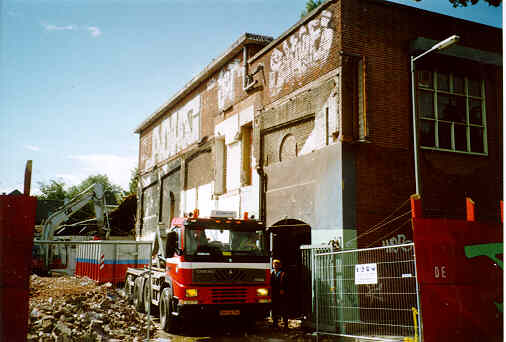This was hit number two.
I don't want to incur Tandleman's wrath again, so here's a translation:
The well-matured Stout from any Brewery, the assessment is left to consumers, is more of a tonic for anemia than anything else.
VOLLH. Extra Stout 12.5 Ct.
DELI Extra Stout 12.5 Ct.
Bass Extra Stout 17.5 Ct.
N. Heerengracht b/d Weesperstr., Amsterdam
Van Vollenhoven's Stout has been a persistent little devil. After the brewery was purchased by Heineken it was transformed into a bottom-fermenting beer, but hung around until the 1990's. I tried it a few times. It wasn't great. Then a group bought the rights and contracted De Schans to brew a version based on old recipe. Now that's a great beer. Just frustratingly hard to find.
The Deli brewery, on Weesperzijde, was founded in 1886 and closed in 1939. It wasn't the most successful of the new generation of modern breweries founded at the end of the 19th century, never really challenging the likes of Amstel and Heineken. Surprisingly, parts of the brewery survived until 2003, buried in a later industrial building. I spotted parts of them as they were being demolished. The wall with the circular windows was part of the Ijskelder.
I think you know who Bass were.














































































3 comments:
That's interesting about new stout being "insipid", since hop character would be pronounced in the new article. Maybe they meant that the winy, fruity flavours that develop with age are absent and new stout is simply too sweet.
Gary
Ron,
I usually find it available at the Pilsner Club (on draught rather than in bottle in mid-May).
"Artificial methods, used to make it quickly foamy, cannot give the beer the same full and vigorous taste, it gets from maturing."
This is still so true.
Post a Comment